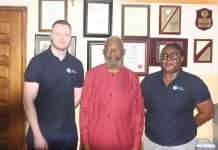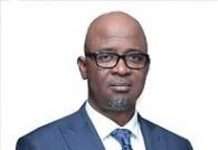
The Lagos State Commissioner for Health, Prof. Akin Abayomi, says the state is establishing specialist hospitals to reduce medical tourism and brain drain in the health sector.
Abayomi said this during the Doctors for Change (DFC) conference on Saturday in Lagos.
According to him, the state identified trust, and lack of medical specialities, as factors driving Nigerians overseas for medical care.
Abayomi said the trend would be reversed to make the state a medical tourist destination.
“We have many general hospitals but what we lack are specialist facilities, and you can get specialist care both in the government and private hospitals.
“What we are trying to do is that we are building more specialist hospitals.
“We have the Massey Children Specialist Hospital, Infectious Disease Research Institute, the largest psychiatric hospital in Africa at Ketu-Ejirin, Epe, the Omotunde Ajoke Cole Hospital, Island.
“We are trying to create a diversification of medical care, so if you need a kidney transplant, heart surgery, the highest level of infectious diseases, rehabilitation centres, you can get it here,” Abayomi said.
He said that the government would continue to invest in human resources, and set standards and suitable policies to ensure the delivery of quality healthcare services.
The commissioner said the state was embarking on a digital footprint that would connect all health facilities, to holistic and collective data on the health-seeking behaviour of Lagosians.
Abayomi said the state wants to partner with the DFC on how the private sector could assist in achieving its strategic goals.
He said the state would continue to evolve favourable policies to attract doctors in the Diaspora, back to Nigeria, either fully or partly.
“Lagos needs to be an international destination for cutting-edge medical service delivery, innovation and research for the betterment of its people,” he said.
Also, Dr Pamela Ajayi, President, of the Healthcare Federation of Nigeria (HFN), said Nigerians in the diaspora have a huge impact on the economy.
He disclosed that $5.16 billion was remitted in a month this year.
Ajayi said the theHFN would continue collaborating with the government to ensure that favourable policy was evolved to impact the health sector.
Similarly, Dr Abiodun Kuti, the President, of the Guild of Medical Directors, said the level of brain drain in the country was alarming.
Kuti said policies should be enacted to encourage doctors to stay or return to the country.
Also, Dr Chinyere Anyaogu, the President, of the Association of Nigerian Physicians in the Americas (ANPA), said the association’s mission was to achieve a healthier Nigeria for a healthier world.
Anyaogu said ANPA, registered in the US, represents the interest of over 5,000 dentists and physicians across the US and had contributed considerably to healthcare development in Nigeria.
She stressed the need for robust partnerships in accelerating healthcare delivery and development in the country.
Also speaking, Dr Babaseyi Oyesola, Convener of DFC, said the DFC was a group of Nigerian healthcare practitioners home and in the Diaspora committed to enhancing healthcare delivery in the country.
Oyesola said DFC works to increase access to care and improve the health of all Nigerians through research, education, collaboration, and advocacy.
According to him, DFC members, who had returned to the country, had set up cardiology centres, cancer centres, and medical laboratories among others, to reduce the need for Nigerians to travel for such care.
Hon. Abike Dabiri-Erewa, Chairman, of Nigerians in Diaspora Commission (NIDCOM), said diasporans were valuable assets, worth more than the billions of naira they sent home as remittances.
Dabiri-Erewa said that they contribute to national development through medical missions, investments, training and skills transfers.
She stressed the importance of synergy between Nigerians at home and in the Diaspora and the government, to promote socioeconomic development.










